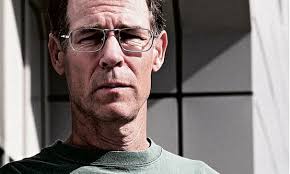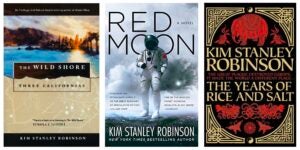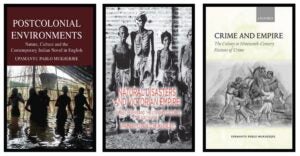Welcome to the conference page for the GREEN Conference, the 2020 meeting of Interdisciplinary Nineteenth-Century Studies, March 5-8 in Los Angeles.
If we want to understand where we are, and where we might be going, we have to figure out how we got here. What is the history of environmentalism and sustainability? The GREEN conference will gather an international host of experts in the history of sustainable cultures and environmentalism to explore what that history offers today, both to understand the sources of environmental degradation and the climate crisis, and to expose alternatives and roads not taken.
Setting the ambitious goal of a carbon-neutral conference, our innovative program incorporates carbon calculation and offsetting for attendees, as well as a “virtual stream” of conference papers presented from remote locations, and a simulcast of those papers, including livechat, for those who want to participate online.
It also features plenary talks by Kim Stanley Robinson, renowned science fiction author and futurist, and Pablo Mukherjee, a scholar of colonial environmentalism, as well as a plenary round table on sustainable research practices.
Keynote Speakers
Plenary talks by Kim Stanley Robinson and Pablo Mukherjee
Kim Stanley Robinson
 Kim Stanley Robinson is the author of more than a dozen climate and science fiction novels, and has received numerous awards, including the Hugo Award for Best Novel, the Nebula Award for Best Novel, and the World Fantasy Award. He has been described as “one of our last great Utopian writers,” a “political visionary,” and a “climate-obsessed sci-fi genius.” Before becoming a writer of fiction, he received a Ph.D. in English, under the direction of Frederic Jameson. He has given numerous lectures on the history of exploration, the problem of climate change and environmental degradation, and the importance of utopia to political thought.
Kim Stanley Robinson is the author of more than a dozen climate and science fiction novels, and has received numerous awards, including the Hugo Award for Best Novel, the Nebula Award for Best Novel, and the World Fantasy Award. He has been described as “one of our last great Utopian writers,” a “political visionary,” and a “climate-obsessed sci-fi genius.” Before becoming a writer of fiction, he received a Ph.D. in English, under the direction of Frederic Jameson. He has given numerous lectures on the history of exploration, the problem of climate change and environmental degradation, and the importance of utopia to political thought.

Pablo Mukherjee
 Professor Mukherjee’s areas of research include Victorian to contemporary imperial/colonial and anti-imperial/colonial cultures, Postcolonial theory and literatures, Crime Fiction, Travel Writing, Environmental/Eco theory and literatures. Science Fiction, and Comparative and World Literary Systems. He is the author of Natural Disasters and Victorian Imperial Culture: Fevers and Famines, Postcolonial Environments: Nature, Culture and Contemporary Indian Novel in English, and Crime and Empire: Representing India in the Nineteenth-Century. With his colleagues at the Warwick Research collective (WReC), he is editing a book called Combined and Uneven Development: Towards a New Theory of World-Literature. A small spin-off of this work has been a special issue of the Yearbook of English Studies on ‘Victorian World Literatures’ that he guest-edited. And he is currently completing a book on the relationship between science policy and science fiction in postcolonial South Asia, and working with his WReC colleagues on a volume of Keywords in World-Literary Studies.
Professor Mukherjee’s areas of research include Victorian to contemporary imperial/colonial and anti-imperial/colonial cultures, Postcolonial theory and literatures, Crime Fiction, Travel Writing, Environmental/Eco theory and literatures. Science Fiction, and Comparative and World Literary Systems. He is the author of Natural Disasters and Victorian Imperial Culture: Fevers and Famines, Postcolonial Environments: Nature, Culture and Contemporary Indian Novel in English, and Crime and Empire: Representing India in the Nineteenth-Century. With his colleagues at the Warwick Research collective (WReC), he is editing a book called Combined and Uneven Development: Towards a New Theory of World-Literature. A small spin-off of this work has been a special issue of the Yearbook of English Studies on ‘Victorian World Literatures’ that he guest-edited. And he is currently completing a book on the relationship between science policy and science fiction in postcolonial South Asia, and working with his WReC colleagues on a volume of Keywords in World-Literary Studies.

Plenary Roundtable on Sustainable Research Practices
Featuring Kenneth Hiltner (University of California, Santa Barbara), Kyle Konis (University of Southern California), Andy Lipkis (Founder and President of TreePeople), and John P. Wilson (University of Southern California)
The conference will be held on March 5-8, 2020, at the Sheraton Grand Hotel in downtown Los Angeles. For information about the call for panel and paper proposals, registration, or further information about travel to and from Los Angeles, consult the menus above.
In our attempt to make this the most sustainable conference possible, we are modifying the INCS format in several ways:
- Registrants will have the option to calculate the carbon cost of their travel and to pay for a carbon offset at registration.
- There will be a virtual stream on Saturday, allowing select panelists to participate by teleconference, with a live simulcast of discussion.
- The conference program will not be physically printed. A pdf and accessibility optimized pdf will be hosted on this site. On on-site printer will allow the printing of schedules, conference talks, and summaries per request.
- The conference is located at a major metro stop, with convenient access to airport transportation and trains available to travel to the beach and various sites around Los Angeles.
- Participants will be given a reusable container which we encourage them to use for coffee and water over the course of their stay.
- Refreshments and foods will be selected from low-carbon sources.
